
Night of the Long Knives on June 30, 1934
Night of the Long Knives: In Germany, Nazi leader Adolf Hitler orders a bloody purge of his own political party, assassinating hundreds of Nazis whom he believed had the potential to become political enemies in the future. The leadership of the Nazi Storm Troopers (SA), whose four million members had helped bring Hitler to power in the early 1930s, was especially targeted. Hitler feared that some of his followers had taken his early “National Socialism” propaganda too seriously and thus might compromise his plan to suppress workers’ rights in exchange for German industry making the country war-ready.
In the early 1920s, the ranks of Hitler’s Nazi Party swelled with resentful Germans who sympathized with the party’s bitter hatred of Germany’s democratic government, leftist politics, and Jews. In November 1923, after the German government resumed the payment of war reparations to Britain and France, the Nazis launched the “Beer Hall Putsch”–their first attempt at seizing the German government by force. Hitler hoped that his nationalist revolution in Bavaria would spread to the dissatisfied German army, which in turn would bring down the government in Berlin. However, the uprising was immediately suppressed, and Hitler was arrested and sentenced to five years in prison for high treason.
Sent to Landsberg jail, he spent his time dictating his autobiography, Mein Kampf, and working on his oratorical skills. After nine months in prison, political pressure from supporters of the Nazi Party forced his release. During the next few years, Hitler and the other leading Nazis reorganized their party as a fanatical mass movement that was able to gain a majority in the German parliament–the Reichstag–by legal means in 1932. In the same year, President Paul von Hindenburg defeated a presidential bid by Hitler, but in January 1933 he appointed Hitler chancellor, hoping that the powerful Nazi leader could be brought to heel as a member of the president’s cabinet.
However, Hindenburg underestimated Hitler’s political audacity, and one of the new chancellor’s first acts was to use the burning of the Reichstag building as a pretext for calling general elections. The police, under Nazi Hermann Goering, suppressed much of the party’s opposition before the election, and the Nazis won a bare majority. Shortly after, Hitler took on absolute power through the Enabling Acts. In 1934, Hindenburg died, and the last remnants of Germany’s democratic government were dismantled, leaving Hitler the sole master of a nation intent on war and genocide.
History Channel / Wikipedia / Encyclopedia Britannica / Jewish Virtual Library.org
/ Night of the Long Knives on June 30, 1934 (YouTube) 
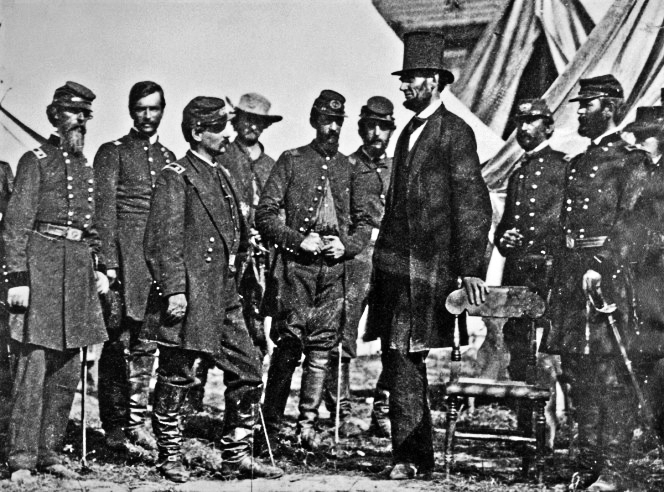
June 15, 1863
Lincoln calls for help: On this day in 1863, President Abraham Lincoln calls for help in protecting Washington, D.C., America’s capital city.
Throughout June, Confederate General Robert E. Lee’s Army of Northern Virginia was on the move. He had pulled his army from its position along the Rappahannock River around Fredericksburg, Virginia, and set it on the road to Pennsylvania. Lee and the Confederate leadership decided to try a second invasion of the North to take pressure off Virginia and to seize the initiative against the Army of the Potomac. The first invasion, in September 1862, failed when the Federals fought Lee’s army to a standstill at the Battle of Antietam in Maryland.
Lee later divided his army and sent the regiments toward the Shenandoah Valley, using the Blue Ridge Mountains as a screen. After the Confederates took Winchester, Virginia, on June 14, they were situated on the Potomac River, seemingly in a position to move on Washington, D.C. Lincoln did not know it, but Lee had no intention of attacking Washington. All Lincoln knew was that the Rebel army was moving en masse and that Union troops could not be certain as to the Confederates’ location.
On June 15, Lincoln put out an emergency call for 100,000 troops from the state militias of Pennsylvania, Maryland, Ohio, and West Virginia. Although the troops were not needed, and the call could not be fulfilled in such a short time, it was an indication of how little the Union authorities knew of Lee’s movements and how vulnerable they thought the Federal capital was.
History Channel / Wikipedia / Britannica Encyclopedia /
University of Michigan / United States Senate.gov
American Civil War Documentary (YouTube) 
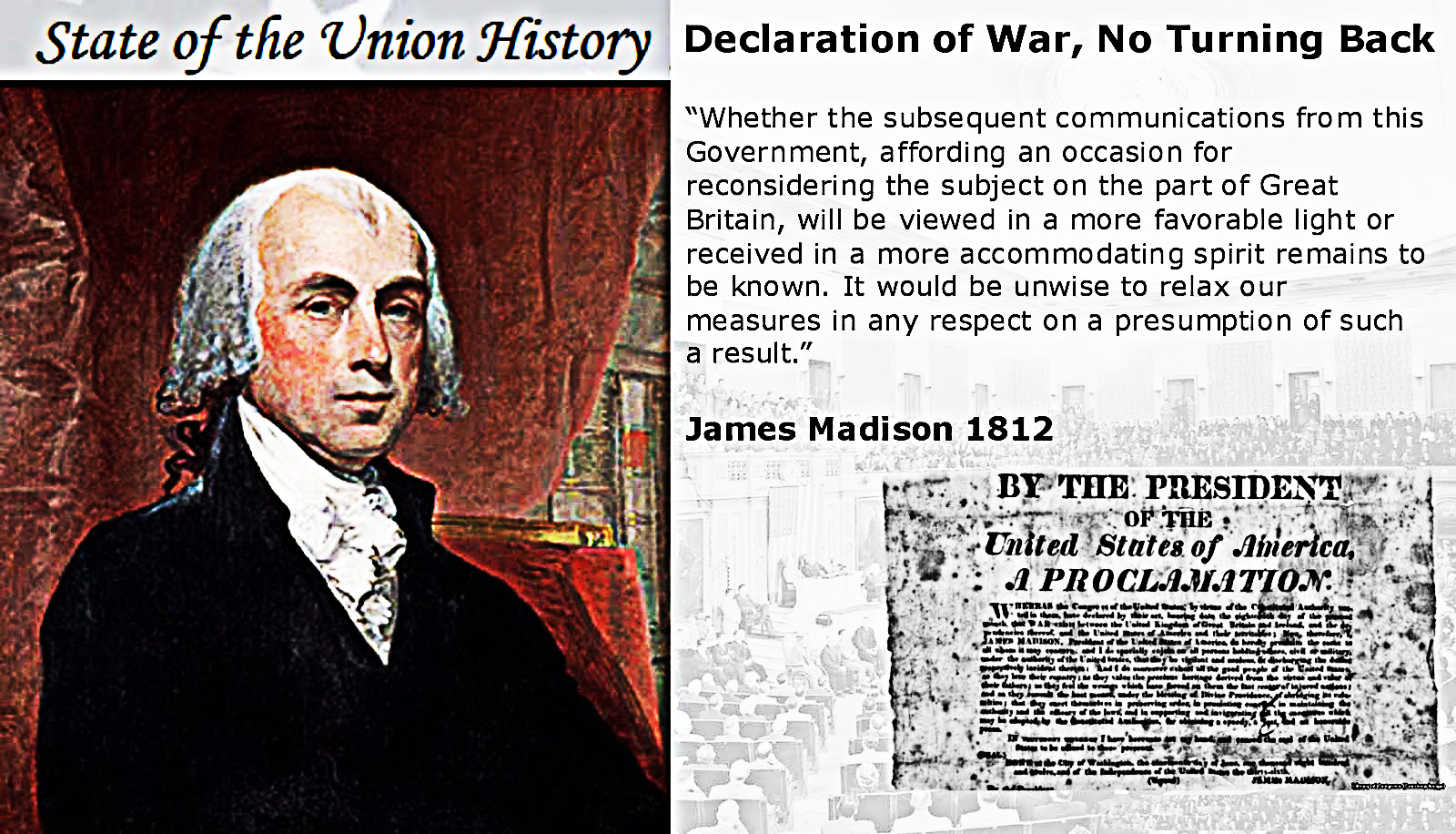
War of 1812: U.S. President James Madison asks the Congress to declare war on Great Britain on June 08, 1812
U.S. President James Madison asks the Congress to declare war on Great Britain: As Congress debated whether to declare war against Great Britain, President James Madison addressed a message to the Senate and House of Representatives detailing British offenses against the United States.
Madison concluded that Great Britain was already in a state of war against the United States, but left Congress to determine the nation’s response.
On June 19, 1812, the Senate followed the House of Representatives in voting to declare war against Great Britain, the day after President James Madison signs the declaration into law - and the War of 1812 begins. The American war declaration, opposed by a sizable minority in Congress, had been called in response to the British economic blockade of France, the induction of American seaman into the British Royal Navy against their will, and the British support of Indian tribes along the Great Lakes frontier. A faction of Congress known as the “War Hawks” had been advocating war with Britain for several years and had not hidden their hopes that a U.S. invasion of Canada might result in significant territorial land gains for the United States.
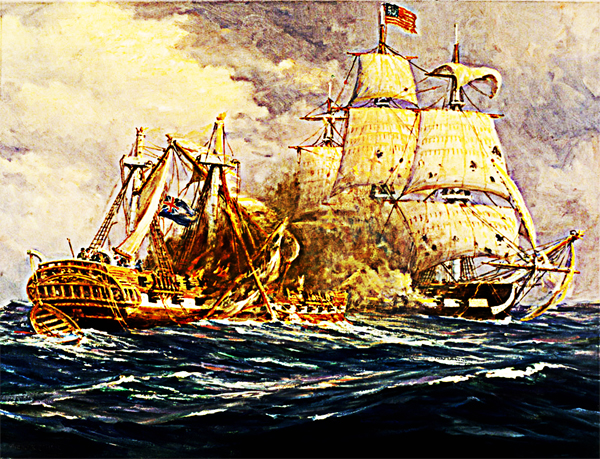
In the months after President Madison proclaimed the state of war to be in effect, American forces launched a three-point invasion of Canada, all of which were decisively unsuccessful. In 1814, with Napoleon Bonaparte’s French Empire collapsing, the British were able to allocate more military resources to the American war, and Washington, D.C., fell to the British in August. In Washington, British troops burned the White House, the Capitol, and other buildings in retaliation for the earlier burning of government buildings in Canada by U.S. soldiers.
In September, the tide of the war turned when Thomas Macdonough’s American naval force won a decisive victory at the Battle of Plattsburg Bay on Lake Champlain. The invading British army was forced to retreat back into Canada. The American victory on Lake Champlain led to the conclusion of U.S.-British peace negotiations in Belgium, and on December 24, 1814, the Treaty of Ghent was signed, formally ending the War of 1812. By the terms of the agreement, all conquered territory was to be returned, and a commission would be established to settle the boundary of the United States and Canada.
British forces assailing the Gulf Coast were not informed of the treaty in time, and on January 8, 1815, the U.S. forces under Andrew Jackson achieved the greatest American victory of the war at the Battle of New Orleans. The American public heard of Jackson’s victory and the Treaty of Ghent at approximately the same time, fostering a greater sentiment of self-confidence and shared identity throughout the young republic.
HISTORY STORIES: Things You May Not Know About the War of 1812
History Channel / Wikipedia / Encyclopedia Britannica /
Battle Fields.org / Smithsonian Institute.org / Office of The Historian.gov /
Library Of Congress.gov / War Museum Canada / USS Constitution Museum.org /
Constitution Center.org / Famous Trials / Live Science /
War of 1812: U.S. President James Madison asks the Congress to declare war on Great Britain on June 01, 1812 (YouTube) 
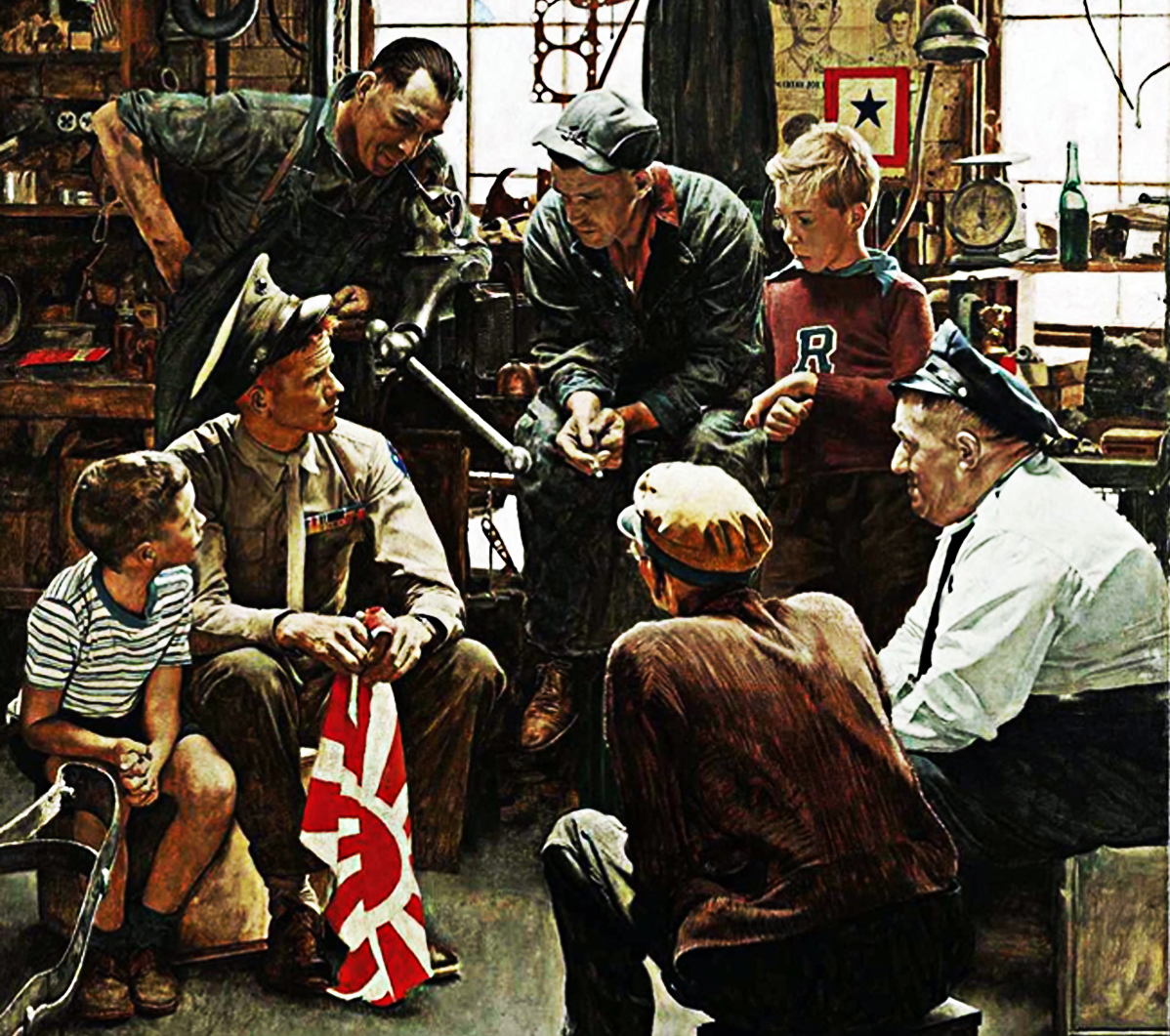
Understanding Military Terminology
Refugee
(DOD) A person who, owing to a well-founded fear of being persecuted for reasons of race, religion, nationality, membership of a particular social group, or political opinion, is outside the country of his or her nationality and is unable or, owing to such fear, is unwilling to avail himself or herself of the protection of that country.
See also Dislocated Ccivilian; Displaced Person; Evacuee; Stateless Person.
Joint Publications (JP 3-29) Foreign Humanitarian Assistance
Regimental Landing Team
(DOD) A task organization for landing composed of an infantry regiment reinforced by those elements that are required for initiation of its combat function ashore.
Joint Publications (JP 3-02) Intelligence Resource Program
Regional Air Defense Commander
(DOD) Commander, subordinate to the area air defense commander, who is responsible for air and missile defenses in the assigned regionand exercises authorities as delegated by the area air defense commander.
Also called RADC.
Joint Publications (JP 3-01) Countering Air and Missile Threats
Regional Response Coordination Center
(DOD) A standing facility that is activated to coordinate regional response efforts, until a joint field office is established and/or the principal federal official, federal or coordinating officer can assume their National Response Framework coordination responsibilities.
Also called RRCC.
Joint Publications (JP 3-28) Defense Support of Civil Authorities
Regional Security Office
(DOD) A security officer responsible to the chief of mission (ambassador), for security functions of all United States embassies and consulates in a given country or group of adjacent countries.
Also called RSO.
Joint Publications (JP 3-10) Joint Security Operations in Theater, 25 July 2019
Joint Publication - Department of Defense Dictionary of Military and Associated Terms

The Old Salt’s Corner

“An Old Sailor”
\ They remember friends from long ago and the times they had back then, of the money they've spilled and the beer they've swilled in their days as sailing men.
Their lives are lived in days gone by , with thoughts that forever last, of Dixie cup hats and bell bottom blues, and the good times in their past.
They recall long nights with a moon so bright far out on a lonely sea, and thoughts they had as youthful lads when their lives were unbridaled and free.
They know so well how their hearts would swell when the flag fluttered proud and free, and the stars and stripes made such beautiful sights as they plowed through an angry sea.
They talk of the bread Ole Cookie would bake and the shrill of the bo'sun's pipe, and how the salt spray fell like sparks out of hell when a storm struck in the night.
They remember mates already gone who forever hold a spot in the stories of old when sailors were bold and lubbers a pitiful lot.
They rode their ships through many a storm when the sea was showing its might, and the mighty waves might be digging their graves as they sailed on through the night.
They speak of nights in a bawdy house somewhere on a foreign shore, and the beer they'd downed as they gathered around cracking jokes with a busty whore.
Their sailing days are gone away, never more will they cross the brow, but they have no regrets for they know they've been blessed 'cause they honored their sacred vow.
Their numbers grow less with each passing day as their chits in this life are called, but they've nothing to lose for they've paid their dues and they'll sail with their shipmates again.
I've heared them say before getting underway that there is still some sailing to do, and they'll exclaim with a grin that their ship has come in, and the Lord is commanding the crew.
~ Author Unknown

“I’m Just Sayin”
“Give me six hours to chop down a tree and I will spend the first four sharpening the axe.”
“No man has a good enough memory to be a successful liar.”
“Tact is the ability to describe others as they see themselves.”
“It has been my experience that folks who have no vices have very few virtues.”
“A house divided against itself cannot stand.”
“The best way to get a bad law repealed is to enforce it strictly.”
“The ballot is stronger than the bullet.”
“My great concern is not whether you have failed,
but whether you are content with your failure.”
“You can fool all the people some of the time,
and some of the people all the time,
but you cannot fool all the people all the time.”
“Character is like a tree and reputation like a shadow.
The shadow is what we think of it
the tree is the real thing.”
~ Abraham Lincoln

“Thought for the Day”
“We can't help everyone, but everyone can help someone.”
“Government's first duty is to protect the people, not run their lives.”
“Facts are stubborn things.”
“Life is one grand, sweet song, so start the music.”
“Trust, but verify.”
“The most terrifying words in the English language are:
I'm from the government and I'm here to help.”
“If we ever forget that we are One Nation Under God,
then we will be a nation gone under.”
“Peace is not absence of conflict,
it is the ability to handle conflict by peaceful means.”
“When you can't make them see the light,
make them feel the heat.”
“The trouble with our Liberal friends is not that they're ignorant;
it's just that they know so much that isn't so.”
“Freedom is never more than one generation away from extinction.
We didn't pass it to our children in the bloodstream.
It must be fought for, protected, and
handed on for them to do the same.”
“Government's view of the economy could be summed up in a few short phrases:
If it moves, tax it.
If it keeps moving, regulate it.
And if it stops moving, subsidize it.”
~ Ronald Reagan

“What I Learned”
“Don't let yesterday use up too much of today.”
“Make crime pay. Become a lawyer.”
“Everybody is ignorant, only on different subjects.”
“The worst thing that happens to you may be the best thing for you if you don't let it get the best of you.”
“Too many people spend money they haven't earned to buy things they don't want to impress people they don't like.”
“The best way out of a difficulty is through it.”
“Everything is funny, as long as it's happening to somebody else.”
“The only difference between death and taxes is that death doesn't get worse every time Congress meets.”
“Worrying is like paying on a debt that may never come due.”
“When ignorance gets started it knows no bounds.”
“It's a good thing we don't get all the government we pay for..”
“Diplomacy is the art of saying “Nice Doggie” until you can find a rock.”
“Good judgment comes from experience,
and a lot of that comes from bad judgment.”
“Even if you're on the right track,
you'll get run over if you just sit there.”
“There are three kinds of men.
The one that learns by reading.
The few who learn by observation.
he rest of them have to pee on the electric fence for themselves.”
~ Will Rogers
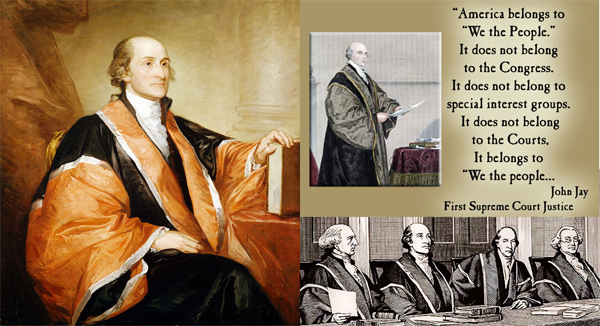 Mr. Answer Man Please Tell Us: Why Do Supreme Court Justices Serve for Life?
Mr. Answer Man Please Tell Us: Why Do Supreme Court Justices Serve for Life?
There are few political appointments quite as important as a nomination to the U.S. Supreme Court. Unlike a cabinet secretary or an ambassador, justices serve for life. In the modern era, that often means more than three decades on the court.
Thanks to increased lifespans, justices appointed in the next century are expected to sit on the Supreme Court for an average of 35 years, compared to the average of around 16 years that judges served in the past.
Because of this shift, some scholars have begun to question whether lifetime appointments are still appropriate, as the definition of “for life” has changed so much since the Constitution was written. But why do justices serve for life, anyway?
The U.S. Constitution doesn’t exactly specify that justices and the court are in a “’til death do us part” relationship. Article III says that judges (of both the Supreme Court and lower federal courts) “shall hold their offices during good behavior”.
So technically, a judge could be removed if they no longer meet the “good behavior” part of the clause, but there are otherwise no limits on their term.
In practice, this means they have their seat for life, unless they are impeached and removed by Congress. Only 15 federal judges in U.S. history have ever been impeached by Congress—all lower court judges—and only eight have been removed from office, though some have resigned before their inevitable removal.
The only Supreme Court justice Congress has tried to impeach was Samuel Chase, who was appointed by George Washington in 1796. Chase was an openly partisan Federalist vehemently opposed to Thomas Jefferson’s Democratic-Republican policies, and he wasn’t afraid to say so—either in his role as a lower court judge or once he was appointed to the Supreme Court.
In 1804, the House of Representatives, at then-president Jefferson’s urging, voted to impeach Chase, accusing him, among other things, of promoting his political views from the bench instead of ruling as a non-partisan judge. However, he was acquitted of all counts in the Senate, and went on to serve as a Supreme Court justice until his death in 1811.
The point of giving justices a seat on the bench for the rest of their lives (or, more commonly nowadays, until they decide to retire) is to shield the nation’s highest court from the kind of partisan fighting the Chase impeachment exemplified.
The Supreme Court acts as a check against the power of Congress and the president. The lifetime appointment is designed to ensure that the justices are insulated from political pressure and that the court can serve as a truly independent branch of government.

Justices can’t be fired if they make unpopular decisions, in theory allowing them to focus on the law rather than politics. Justices might be nominated because a president sees them as a political or ideological ally, but once they’re on the bench, they can’t be recalled, even if their ideology shifts. Some data, for instance, suggests that many justices actually drift leftward as they age.
Alexander Hamilton wrote in the Federalist No. 78:
The lack of term limits “is the best expedient which can be devised in any government, to secure a steady, upright, and impartial administration of the laws”.
The judiciary, he believed, “is in continual jeopardy of being overpowered, awed, or influenced by its coordinate branches”, and “nothing can contribute so much to its firmness and independence, as permanency in office.”.
Without lifetime job security, he argued, judges might feel obligated to bow to the wishes of the president, Congress, or the public, rather than confining their work strictly to questions of the Constitution.
While lifetime appointments may be a longstanding tradition in the U.S., this approach isn’t the norm in other countries. Most other democracies in the world have mandatory retirement ages if not hard-and-fast term limits for high court judges.
UK Supreme Court justices face mandatory retirement at age 70 (or 75 if they were appointed before 1995), as do judges on Australia’s High Court. Canadian Supreme Court justices have a mandatory retirement age of 75, while the 31 justices of India’s Supreme Court must retire by the age of 65.
Until her passing at the age of 87 on September 18, 2020, the oldest justice on the current U.S. Supreme Court was Ruth Bader Ginsburg. Oliver Wendell Holmes Jr., the oldest justice in U.S. history, retired in 1932 at age 90.
Though the U.S. Supreme Court has never had term limits before, there have recently been serious proposals to implement them. Term limits, advocates argue, could combat partisan imbalances on the court. Presidents wouldn’t get to appoint justices purely based on whether someone died while they were in office, and the stakes for political parties nominating a justice would be slightly lower, possibly leading presidents and Congress to compromise more on appointments.
One popular suggestion among political analysts and scholars is to impose an 18-year term limit, though critics note that that particular plan does bring up the potential that at some point, a single president could end up appointing the majority of the justices on the court.
In any case, considering such a change would likely require a constitutional amendment, which means it’s probably not going to happen anytime soon. For the foreseeable future, being on the Supreme Court will continue to be a lifetime commitment.
Mental Floss / Wikipedia / Encyclopedia Britannica /
Supreme Court of the United States.gov / Judicial Learning Center.org/ / Quora /
Why Do Supreme Court Justices Serve for Life? (YouTube) 
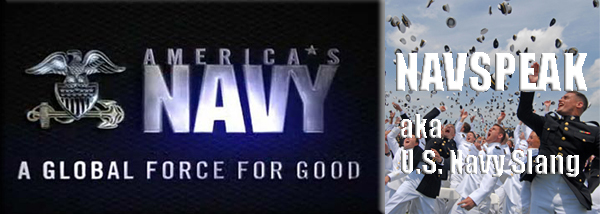
NAVSPEAK aka U.S. Navy Slang
ADCAP: Advanced Capability Torpedo that began life as the Mk 48 torpedo (21 inch diameter) launched primarily by submarine platforms. After the 3rd Mod, advances in computer technology and circuit miniaturization brought about the ADCAP which is a truly remarkable torpedo.
ADSEP: Aircraft Intermediate Maintenance Department.
A department on aircraft carriers and Naval Air Stations responsible for maintaining aircraft sub assemblies.
On an aircraft carrier, this consists of 5 divisions:
IM1 - AIMD Admin,
IM2 - Airframes and Power Plants,
IM3 - Avionics,
IM4 - Ground Support Equipment (GSE) and Aviation Ordnance,
IM5 - IMRL.
Air Department: Consists of 5 divisions, usually manned by Aviation Boatswains Mates.
V0 Division: Admin offices.
V1 Division: Aircraft Handlers on the flight deck.
V2 Division: Maintenance of Catapults and Arresting Gear.
V3 Division: Aircraft Handlers on the Hangar Deck.
V4 Division: Aviation Fuels.
Air Boss: Air Officer. His assistant is the “Mini Boss”.
Air Force Gloves: Pockets. Used when a sailor has his hands in his pockets..
Air Force Salute, Airman Salute, Airedale Salute: An “I don't know” shrug of the shoulders. Also called an Ensign Salute.
Airedale: A sailor who works in one of the Navy's aviation rates also know as “Brown Shoes”.
Airstart:
1) An attempt to restart an aircraft's engine(s) after in-flight failure.
2) A blowjob.
Air Wing: The aviation element on board an aircraft carrier consisting of various squadrons..
Wiktionary.org

Just for you MARINE
Air Crew: Personnel that work on board any aircraft that can carry a crew (i.e. UH-1, CH-46, CH-53, V-22, etc.), and are normally charged with loading gear, passengers, and manning the door/ tail guns.
Air Force Pockets or Army Gloves: An individual's hands being inside his or her pockets.
ALICE: All-purpose Lightweight Individual Carrying Equipment, a form of combat gear still in occasional use in some Marine activities, replaced by MOLLE and ILBE.
Wikipedia.org

Naval Aviation Squadron Nicknames
Helicopter Sea Combat Weapons School Atlantic Other Rotary Wing Aircraft Units - nicknamed the “N/A”
United States Navy - Naval Station Norfolk, Virginia - Headquarters and home port of the U.S. Navy's Fleet Forces Command.
Wikipedia.org

Where Did That Saying Come From?

“Off the record:” Meaning: Something said in confidence that the speaker doesn't want attributed to them.
History: Something said in confidence that the speaker doesn't want attributed to them.
This is an American phrase and began to be used there in the 1930s. The first citation I have of it 'on the record' is in a report of a social event attended by President Franklin Roosevelt, in the North Carolina newspaper The Daily Times-News, November 1932:
“He [Roosevelt] said that he was going to talk 'off the record', that it was mighty nice to be able to talk 'off the record' for a change and that he hoped to be able to talk 'off the record' often in the future. He told a couple of funny stones and everybody laughed and cheered.”
Phrases.org UK

Science & Technology

FEATURE: Search for alien life extends to Jupiter's icy moons
• Starting small and simple was key to success for evolution of mammals, reveals new study
The Sudbury Neutrino Observatory (SNO)+ collaboration gathers the first evidence of antineutrinos in a water Cherenkov detector
• How an African bird might inspire a better water bottle
• Geoscientist discovers new phosphorus material after lightning strike
Canadian dire wolf fossil formally identified
• Evidence found of possible interdomain horizontal gene transfer leading to development of the eye in vertebrates
• Amazon creates a new user-centric simulation platform to develop embodied Artificial Intelligence (AI) agents
New “AI scientist” combines theory and data to discover scientific equations
• Mitochondria power supply failure may cause age-related cognitive impairment
• The brain's cannabinoid system protects against addiction following childhood maltreatment, study shows
Phys.org / MedicalXpress / TechXplore

FEATURE: New details of Tully monster revealed
• The comprehensive characterization of hydrogen at ultra-high pressures
• Computer scientists create “believable” human interactions in AI world of Smallville
Extrachromosomal DNA detection in Barrett's esophagus linked to cancer development
• A new breakthrough in Alzheimer's disease research: Visualizing reactive astrocyte-neuron interaction
• New genetic target for male contraception identified
Researchers identify genes that can improve stroke diagnosis and treatment
• Long COVID smell loss linked to changes in the brain
• Illuminating tumor cells with dark proteins
A solar hydrogen system that co-generates heat and oxygen
• Methane from megafires: Novel detection technique raises pollution policy questions
• “Big Sponge:” new CO2 tech taps oceans to tackle global warming
Phys.org / MedicalXpress / TechXplore

Bizarre News (we couldn’t make up stuff this good - real news story)
Stressed Plants “Screa” And It Sounds Like Popping Bubble Wrap

A study of tomato and tobacco plants suggests they emit ultrasonic popping sounds when dehydrated or physically damaged.
When deprived of water or snipped with scissors, plants emit a flurry of staccato “screams” that are too high-frequency for humans to hear, a study suggests. When lowered into a range that human ears can detect, these stress-induced pops sound like someone furiously tap dancing across a field of bubble wrap.
Although humans cannot hear these ultrasonic pops without technological assistance, various mammals, insects and even other plants may be able to detect these noises in the wild and respond to them, researchers reported Thursday (March 30) in the journal Cell. (The same researchers first shared their popping-plant discovery in 2019 on the preprint database bioRxiv, but the work has now been peer-reviewed.)
In the future, humans could harness recording devices and artificial intelligence (AI) to monitor crops for these signs of dehydration or disease, the scientists suggest.

Past research revealed that drought-stressed plants undergo a process called cavitation - where air bubbles form and collapse within the plant's vasculature tissue - which makes a popping sound that can be detected by recording devices attached to the plant (opens in new tab). But it wasn't clear if such popping sounds could be heard at a distance, the authors wrote in Cell.
So the team set up microphones near healthy and stressed tomato (Solanum lycopersicum) and tobacco (Nicotiana tabacum) plants, both in a soundproofed box and in a greenhouse setting. The stressed plants were either dehydrated or had their stems snipped. The team also recorded pots with only soil in them, to check that soil, alone, didn't make any sounds. (They found it didn't.)
On average, healthy plants let out less than one pop per hour, but the stressed plants emitted about 11 to 35, depending on the plant species and stressor. Drought-stressed tomato plants were noisiest, with some plants emitting more than 40 pops per hour.
The team fed these recordings into a machine-learning algorithm - an AI system used to identify patterns in data - and found that the trained algorithm had about a 70% success rate in distinguishing the sounds made by different plants exposed to different stressors. They trained another AI system to differentiate between drought-stressed and healthy tomatoes in a greenhouse with more than 80% accuracy. Another model could tell what stage of dehydration a plant was in with about 80% accuracy.

In additional experiments, the team successfully recorded sounds from diseased tomato plants infected with tobacco mosaic virus, and captured the cries of a slew of other stressed plants, such as wheat (Triticum aestivum), corn (Zea mays) and pincushion cactuses (Mammillaria spinosissima).
Although the researchers gathered these recordings by setting microphones about 4 inches (10 centimeters) away from the plants, they suggest that these ultrasonic sounds could potentially be heard by mammals and insects with great hearing from 9.8 to 16.4 feet (3 to 5 meters) away.
“These findings can alter the way we think about the plant kingdom, which has been considered to be almost silent until now”, the study authors wrote.
Related: Otherworldly “fairy lantern” plant, presumed extinct, emerges from forest floor in Japan
Scientists accidentally discover photosynthesis doesn't work exactly like we thought it did
Otherworldly “fairy lantern” plant, presumed extinct, emerges from forest floor in Japan
Dinosaur-killing asteroid did not trigger a long “nuclear winter” after all
Live Science (03/20/2023) 

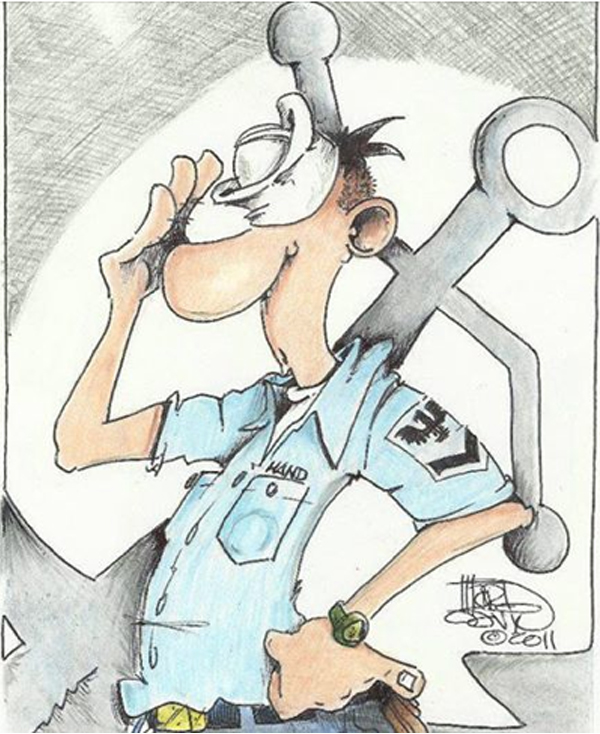
SONG FACTS

“Dreams”  - Fleetwood Mac
- Fleetwood Mac
Album: Rumours
Released 1977 
During the sessions for Rumours, everyone in the band was going through a breakup
(Stevie Nicks and Lindsey Buckingham with each other, John and Christine McVie with each other, Mick Fleetwood with his wife Jenny Boyd) and doing a lot of drugs.
They were able to work together, but most of the songwriting was on an individual basis. Stevie Nicks wrote this one in the studio next door where Sly Stone was recording.
He had a big, semicircular bed and red velvet all over the walls - a great vibe for a song about romantic entanglements.
The line, “Players only love you when they're playing,” was directed at Lindsey Buckingham. Stevie Nicks was not pleased when he brought “Go Your Own Way” to the sessions, which was clearly about her.
Stevie told Q magazine June 2009: “It was the fairy and the gnome. I was trying to be all philosophical. And he was just mad.”
“Dreams”  is Fleetwood Mac's only #1 hit in the U.S., surprising considering how familiar many of their songs are in that country. The Hot 100 didn't always reflect the impact of their songs, many of which showed remarkable endurance.
is Fleetwood Mac's only #1 hit in the U.S., surprising considering how familiar many of their songs are in that country. The Hot 100 didn't always reflect the impact of their songs, many of which showed remarkable endurance.
Stevie Nicks recalled to The Daily Mail October 16, 2009:
“I remember the night I wrote ‘Dreams’. I walked in and handed a cassette of the song to Lindsey. It was a rough take, just me singing solo and playing piano. Even though he was mad with me at the time, Lindsey played it and then looked up at me and smiled. What was going on between us was sad. We were couples who couldn't make it through. But, as musicians, we still respected each other - and we got some brilliant songs out of it.”
The word “dreams” shows up just three times in this song:
It's only me who wants to wrap around your dreams
And have you any dreams you'd like to sell?
Dreams of loneliness
They could have titled the song “Thunder Only Happens When It's Raining” after the first line of the chorus, but went with something much more compact. Part of Fleetwood Mac's appeal was their gift for making incredibly popular songs without hewing to the strictures of popular songwriting like title repetition.
In 1998 a Todd Terry
re-mix of a cover  by The Corrs peaked at #6 in the UK.
The Irish group originally recorded the song for a Fleetwood Mac tribute album. Mick Fleetwood, who is a fan of The Corrs, had asked them to record it.
by The Corrs peaked at #6 in the UK.
The Irish group originally recorded the song for a Fleetwood Mac tribute album. Mick Fleetwood, who is a fan of The Corrs, had asked them to record it.
Christine McVie said in a 1997 interview with Q:
“‘Dreams’ developed in a bizarre way. When Stevie first played it for me on the piano, it was just three chords and one note in the left hand. I thought, This is really boring, but the Lindsey genius came into play and he fashioned three sections out of identical chords, making each section sound completely different. He created the impression that there's a thread running through the whole thing.”
Christine McVie played both a Hammond organ and a Fender Rhodes electric piano on this track.
Kristin Chenoweth performed this on the hit show Glee in the 2011 Fleetwood Mac-themed episode “Rumours”. This version, credited to “Glee Cast with Kristin Chenoweth”, went to #92 in the U.S.
Artists to cover this song include Richie Havens, Melba Moore, Yo La Tengo, The Corrs, and the American singer-songwriter Lissie, who included it on her 2019 album, “When I'm Alone: The Piano Retrospective”.
This was used in the 2010 film “Eat Pray Love” and in the 2017 “Living The Dream” episode of “Big Little Lies. Another TV use of “Dreams” is in the British version of The Office in the 2002 episode "Party."
The song returned to the Billboard charts in 2018 after a meme went viral. A Twitter user named @bottledfleet edited parts of “Dreams” over footage of Alcorn State University's Golden Girls cheerleaders dancing to an overlay the song to prove that Fleetwood Mac is not boring.
The video was posted on March 22, 2018 with the caption: “Fleetwood Mac's music is so boring, you can't even dance to it.”
The song got another boost when the TikTok user Doggface208 (real name Nathan Apodaca) uploaded a video of him skateboarding down a road while drinking Ocean Spray juice and lip-syncing along to “Dreams” on September 25, 2020.
On October 4, Mick Fleetwood made his own TikTok re-creating Apodaca's video. Fleetwood posted: “@420doggface208 had it right. Dreams and Cranberry just hits different.”
Such was the interest generated by the clips that the song re-entered the Hot 100, peaking at #12.
Continued ...
MORE SONGS

1968
“Albatross”  Live
Live  Video
Video 
1969
“Oh Well Part 1”  Live
Live  Video
Video 
1973
“Hypnotised”  Live
Live  Video
Video 
1975
“Rhiannon”  Live
Live  Video
Video 
1976
“Go Your Own Way”  Live
Live  Video
Video 
1977
“Dreams”  Live
Live  Video
Video 
1979
“Sara”  Live
Live  Video
Video 
“Dreams” - Fleetwood Mac 1977 Continued ...
Fleetwood Mac official site (Fleetwood Mac Discography) / Rock & Roll Hall of Fame / Billboard / All Music / Song Facts /
Ultimate Classic Rock / Fleetwood Mac
Image: “Rumours (album)” by Fleetwood Mac

Trivia
● What line of Latitude lies at 23 degrees and 27 minutes north of the equator?
Answer to Trivia
READ MORE: Encyclopedia Britannica
● Viticulture is the growing and harvesting of what plants?
Answer to Trivia
READ MORE: Regenerative Viticulture Foundation.org
● What comic strip cat was created by Otto Messmer and Pat Sullivan in 1919?
Answer to Trivia
READ MORE: Official Home Page for Felix the Cat and Friends
● What street gang rumbles with the Sharks in “West Side Story”?
Answer to Trivia
READ MORE: Fandom

A Test for People Who Know Everything
From the Jeopardy Archives Category - “CONSTELLATIONS” (Alex: We'll give you the ship; you give us the literary work it appears in.) ($200)
“The Whirlpool Galaxy is in Canes Venatici, ‘the hunting’ these”.
Answer to Jeopardy READ MORE: Constellation Guide
From the Jeopardy Archives Category - “CONSTELLATIONS” ($400)
“In the 18th century a big constellation named for this ship in which Jason & his ‘nauts’ sailed was broken up into smaller ones.”
Answer to Jeopardy READ MORE: Michigan State University, Abrams Planetarium.edu
From the Jeopardy Archives Category - “CONSTELLATIONS” ($600)
“The star Arcturus is in Boötes, but its name is Greek for ‘bear guard’; it's right on the tail of this other constellation.”
Answer to Jeopardy READ MORE: Constellation Guide
From the Jeopardy Archives Category - “CONSTELLATIONS” ($800)
“Lepus, ‘the hare’, is the quarry of this nearby constellation.”
Answer to Jeopardy READ MORE: Space.com
From the Jeopardy Archives Category - “CONSTELLATIONS” ($1,000)
“Appearing overhead in northern summer months, the Summer Triangle is formed by the brightest stars of Aquila the eagle, Lyra the harp and this swan-shaped constellation.”
Answer to Jeopardy READ MORE: Constellation Guide

Joke of the Day


Understanding Engineers #1
Two engineering students were biking across a university campus when one said, “Where did you get such a great bike?”
The second engineer replied, “Well, I was walking along yesterday, minding my own business, when a beautiful woman rode up on this bike, threw it to the ground, took off all her clothes and said”, “Take what you want.”
The first engineer nodded approvingly and said, “Good choice: The clothes probably wouldn't have fit you anyway.”

































